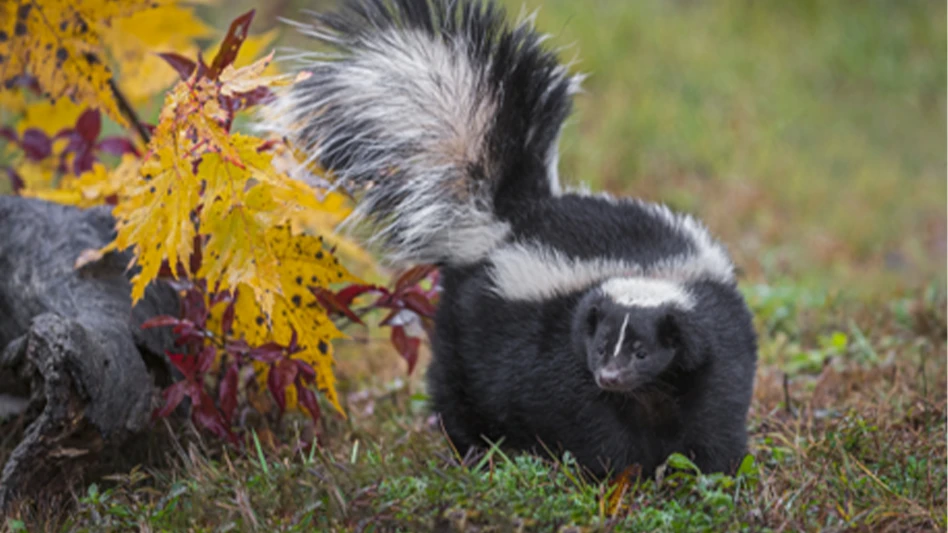Editor’s note: This article was adapted from Techletter, a biweekly publication from Pinto & Associates, Mechanicsville, Md. To subscribe, visit www.techletter.com, or call 301/884-3020.
Why should customers have a flea treatment before going away on vacation?
While your customers and their pets are away from the house, fleas continue to develop. When the female flea lays her eggs (up to 20 per day), they drop off the animal — usually ending up in pet resting areas. A few days later the eggs hatch into wiggly, wormlike flea larvae. The larvae feed on dried blood, skin flakes and other organic debris for a week or more. Then they pupate.
Once the adult flea has fully developed inside the pupal cocoon, it can remain in a kind of "limbo" for a long time. The flea waits in its pupal cocoon until it detects heat, pressure or carbon dioxide — meaning a potential blood source is near. Meanwhile, the family has departed for a three-week vacation at the beach. The dog went on vacation while the cat was boarded at the vet. While the house was empty, eggs hatched, larvae matured and a lot of adult fleas laid in waiting. The family returns, tanned and relaxed, and is immediately attacked by a horde of hungry fleas. How can they avoid this scenario? Suggest a residual flea treatment before your client leaves on vacation, along with a thorough vacuuming and cleaning of pet areas.
Why is treating pets so important?
Treating the house won’t get rid of the fleas on the customer’s pet. Adult fleas spend virtually all of their time on the dog or cat. The insecticide on the carpet kills the developing flea larvae. Adult fleas may never come in contact with it. An on-animal flea treatment (by a veterinarian) is important to provide relief for their pet and to keep adult fleas from laying more eggs.
Why should pet owners pay attention to where their pet sleeps?
A female flea can lay hundreds of eggs while on the pet. But the eggs fall off the animal. Most of them will end up where the pet rests — either in pet bedding, in the pet’s favorite chair or maybe in the customer’s bed. When these eggs hatch, the larvae feed on bits of dried blood that have fallen from the pet. The customer may see what looks like salt and pepper sprinkled where the pet rests. The "salt" is white flea eggs and larvae. The "pepper" is dried blood droppings from adult fleas. The homeowner needs to show the technician these spots so he can treat them. Pet resting areas should be vacuumed frequently and bedding washed often.
Why is a professional flea treatment important?
Treating the pet with a flea control product may kill the adult fleas that are on the animal but you can bet that there are still plenty of flea eggs and developing larvae in the carpeting, in furniture and along baseboards. These developing fleas will reinfest the pet and the cycle will continue.
*****
Four Facts Regarding Flea Control
1. Fleas are insects that go through a complete metamorphosis. Just like butterflies and moths, fleas have four stages of life: egg, larva, pupa and adult. Each stage looks totally different from the others.
2. Adult fleas live on pets. They feed by biting with their tube-like mouths and sucking blood. Spines and claws help them stay on pets and other animals.
3. Flea eggs and larvae (young) live in the carpet, on furniture or in pet bedding. The eggs hatch into larvae, legless and blind, and looking like small white worms. The larvae burrow down into carpets where they feed on dried blood dropping from the animal above. Flea larvae do not bite.
4. Pets can pick up new fleas outdoors. Other pets and wild animals visiting the yard can leave behind fleas that can jump onto your customers’ pets.

Explore the June 2011 Issue
Check out more from this issue and find your next story to read.
Latest from Pest Control Technology
- Mitchell Boston's Involvement as Local Councilman Sparks Growth in Pest Control Business
- Grizz Pest Management Owners Support Wildlife Conservation with Brookfield Zoo in Chicago
- Grizz Pest Management Partners with Brookfield Zoo to Build Tropical Forests Exhibit
- Truly Nolen Promotes Bohne to Vice President of Business Development
- Watch: Abell Pest Control Holds Snap Trap Challenge
- PMPs Encouraged to ‘Move at the Speed of Technology’ at Purdue Conference
- Bug Off Pest Control Center to Supply NYC with Evolve
- Envu Earns EcoVadis Gold Rating for Sustainability Leadership





